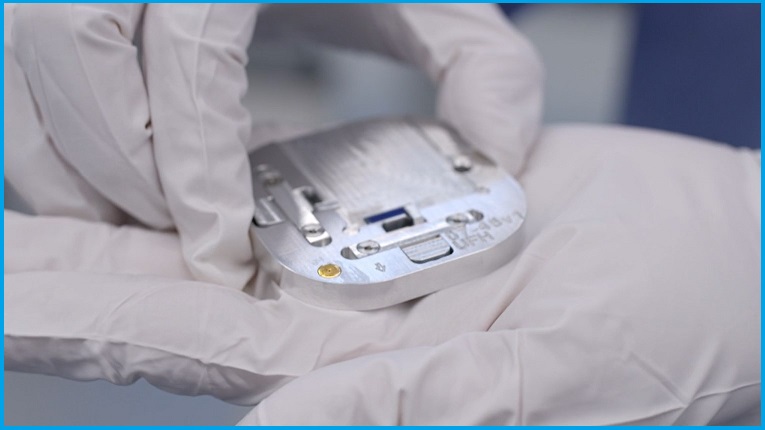Sydney-based company Silicon Quantum Computing (SQC) has successfully manufactured the first integrated silicon quantum computer chip, cementing Australia’s reputation as a leader in quantum computing expertise and engineering.
SQC founder and renowned quantum physicist Professor Michelle Simmons said her company had made a “major breakthrough” in the race for quantum supremacy.
“Today’s classical computers struggle to simulate even relatively small molecules due to the large number of possible interactions between atoms,” she said in a statement.
“Development of SQC’s atomic-scale circuit technology will allow the company and its customers to construct quantum models for a range of new materials, whether they be pharmaceuticals, materials for batteries, or catalysts.
“It won’t be long before we can start to realise new materials that have never existed before.”
The announcement is the culmination of over 20 years of research from Professor Simmons who was a founder of the Australian Research Council’s Centre of Excellence for Quantum Computer Technology at the turn of the millennium.
In 2017, she founded SQC with $83 million in seed funding from the University of NSW, Telstra, Commonwealth Bank, and the NSW and federal governments.
Quantum computing is a complex and emerging field that incorporates the cutting edge of physics, engineering, and computer science.
Companies big and small are racing to develop technology that can closely mimic the inherently probabilistic quantum world and have taken different approaches – such as the use of nitrogen-vacancy centres in diamond – to hold and manipulate quantum bits (qubits).
Professor Simmons and SQC’s efforts have been directed at building a quantum chip using a material central to the computers we use every day: silicon.
In an interview with Information Age earlier this year, Professor Simmons said silicon was the obvious choice for quantum computing in part because of the ease with which you can keep a qubit controlled in a silicon chip.
“If you look at the actual material properties, silicon has a long coherence time and you can manufacture it right down to the atomic level,” she said.
“Then you can create a kind of hardware platform in a material that you can actually manufacture.”
Now it has been able to fully build a quantum integrated circuit in silicon and achieve its design and engineering objectives, SQC is looking to scale up and produce the kind of hardware needed to outperform classical computers on certain tasks.
Last week, SQC launched a $130 million capital raise that will provide funding for the next five years – a crucial time for the company as it heads toward commercialisation.
Professor Simmons told ABC News Breakfast on Thursday morning that her company’s development aligns nicely with the timing of classical computing.
“We had the first transistor in 1947, the first integrated circuit in 1958 – that was 11 years later, and then it was about 5 years before they got commercial products for a classical computer,” she said.
“Now we had our first atomic scale transistor in 2012, and we were gunning for the integrated circuit by the end of 2023, but we got it by the end of 2021, so two years ahead of schedule.
“That allows us to know we’ve got about five years before we’ll start to see commercial products.”










